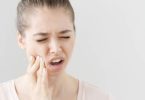Athletes focus on the performance in their discipline and train hard to set new personal bests. They often sacrifice hanging out with friends and relaxing to get ready for competitions. Unfortunately, we see many athletes neglecting their oral hygiene, too. Here is a quick athlete’s guide to dental care to ensure which steps to follow to improve your dental health!
The link between Tooth Decay and Performance Habits
Trauma is at the top of the list, but many factors put athletes at an increased risk of dental problems. For example, swimmers spend hours in pools every day. They swim in chlorinated water whose acidity can damage the tooth enamel. Many athletes deal with dehydration caused by sweating, and that leads to dry mouth.
Another problem that could lead to tooth decay is using energy bars and sports drinks. While they are rich in protein and provide the necessary energy, these beverages are also sugary. That’s a risk factor for tooth decay, enamel erosion, and even gum disease.
It’s vital to recognize the signs and symptoms of a tooth cavity as soon as possible. Regular dental visits are imperative because it might be late when your tooth starts aching.
Here are more tips to improve oral hygiene and reduce the odds of tooth decay:
- Choose your dental hygiene equipment wisely. You should use a soft-bristled brush and fluoride toothpaste. Your dentist might suggest the best solution for your teeth.
- Avoid smoking and chewing tobacco. Athletes already have other risks of damaging their tooth enamel, and cigarettes can only make things worse.
- Consider better alternatives to sugary drinks. Sports beverages often contain high amounts of sugar. You can talk with your coach and dentist to find healthier options for your teeth. The same applies to energy bars you might be eating after practice. Some athletes apply energy gels to their teeth, which can also have a damaging influence on oral health.
It’s important to maintain oral health since it affects your performance. If your tooth is aching, you might not sleep, which can compromise your results on the pitch. Not to mention that oral health can affect your overall physical and mental condition. Periodontal disease is a risk factor for developing diabetes, stroke, or heart disease.
Use Mouthguard
According to research, more than 10% of all dental injuries are caused by sports. The same report indicates athletes lose over five million teeth yearly. You can reduce the odds of anything going wrong while playing if you wear a mouthguard.
It’s your primary line of defense against dental injuries. Many resist the idea of wearing this accessory because it’s uncomfortable. Some don’t like that mouthguards aren’t aesthetically attractive. And while they don’t look appealing, the important thing is the protection they provide.
The market offers different mouthguard types:
- Stock. These are entry-range mouthguards and the most affordable category in the market. You might find them in stores that sell sporting products. It’s important to choose the right size since these guards won’t adapt to your mouth. If you want to ensure they stay in place, you should keep your mouth closed.
- Boil and bite. You begin by placing these mouthguards in hot water. After they soften, you put them in the mouth, and they adapt to your teeth and gums. You help the molding process by using gentle pressure of the bite. You might need a consultation with a dentist if you wear braces or other dental equipment.
- Custom-made. Professional dentists make these mouthguards. They take an impression of your mouth and use that 3D scan to come up with the best guarding option. These products ensure maximum comfort but also provide excellent protection. Custom-made guards are expensive but long-lasting.
Brush, Floss, Rinse
The standard dental hygiene rules apply to athletes, too. You’ll need to brush your teeth daily at least twice. Make sure to always wash them before going to bed. Flossing is critical since it will remove food and other residues from gaps in your mouth.
As an athlete, you probably have a training routine. Make sure to create and follow a dental routine. It won’t take more than 15 minutes daily, and it will maximize your oral health. And healthy teeth are less susceptible to damage while you are playing sports!
AUTHOR’S BIO:
Jessica Green is a content writer with 5 years of experience, who covers topics related to oral care, hygiene, and general wellbeing. Jessica enjoys giving readers the most up-to-date and relevant information in a clear, friendly manner.
She is currently living in Las Vegas, and cooperating with Stephen Spelman Dental Office as a content marketer.








